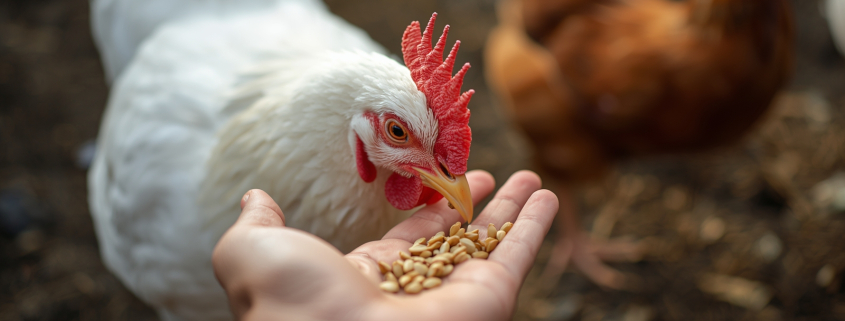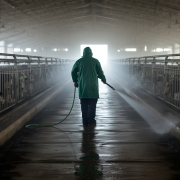The Power of Feed Additives for Poultry
The Power of Feed Additives for Poultry
Introduction
Feed additives are one of the most essential tools used in the poultry industry to improve growth performance, gut health, feed efficiency, and to reduce the environmental impact. In this post, we explore the history, benefits, and future perspectives of feed additives, as well as the current challenges the poultry industry is facing.
History of Feed Additives in Poultry Nutrition
The use of feed additives in poultry nutrition began in the 1950s. With advancements in science and production, non-nutritive additives like antibiotics, coccidiostats, antioxidants, and mold inhibitors were introduced. Over time, more sophisticated additives like enzymes, betaine, and amino acids have been incorporated, contributing to reduced feed costs, improved growth, and better feed conversion. As the industry has evolved, feed additives have become an integral part of poultry production systems, increasing productivity and maintaining bird health.
First and Second-Generation Feed Additives
First-Generation Additives: These include antibiotics, coccidiostats, antioxidants, and anti-caking agents. In the past, antibiotics were commonly used as growth promoters, but due to concerns about antimicrobial resistance, their use has been restricted in many countries.
Second-Generation Additives: These newer additives, such as exogenous enzymes, betaine, and amino acids, have gained popularity in recent decades. They focus on improving digestion, enhancing feed efficiency, and addressing modern industry concerns about sustainability and animal welfare.
Current Trends and Challenges
Alternatives to Antibiotic Growth Promoters (AGPs): With the ban and restrictions on AGPs in several countries, there has been a significant push for alternatives that promote gut health and improve digestion in poultry. Various feed additives, including probiotics and prebiotics, are being tested as potential substitutes.
Sustainability: Reducing nutrient excretion in poultry waste is a growing concern. Additives like feed enzymes and amino acids help improve nutrient utilization and reduce environmental impact, which is critical in meeting sustainability goals.
Animal Welfare: There is an increasing focus on the health and welfare of poultry, with feed additives playing a crucial role in maintaining gut integrity, boosting immunity, and improving overall health.
Conclusion
Feed additives have played a significant role in the advancement of the poultry industry, contributing to improved bird performance, health, and environmental sustainability. With the growing demand for healthier, more efficient poultry production systems, the future of feed additives lies in developing sustainable, effective solutions that address both industry needs and consumer concerns. The continued research into alternatives to antibiotics and the use of exogenous enzymes will shape the future of poultry nutrition.




Leave a Reply
Want to join the discussion?Feel free to contribute!